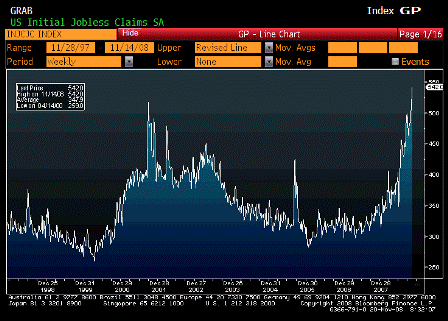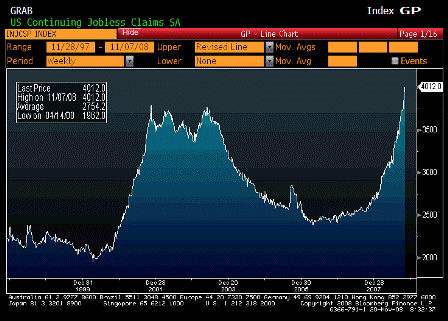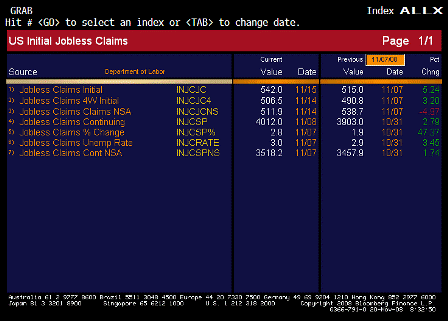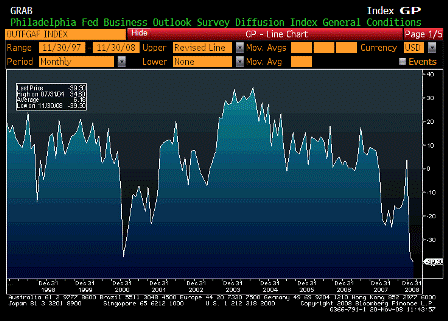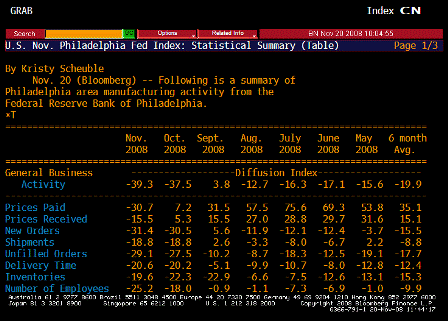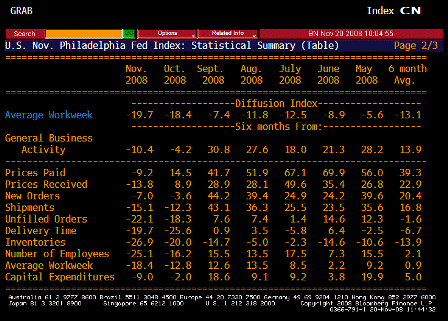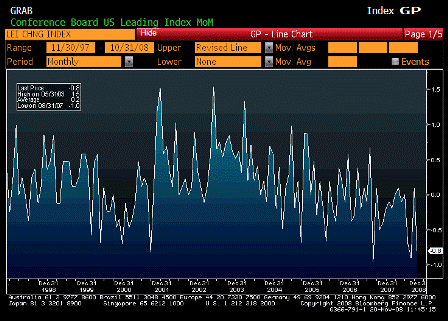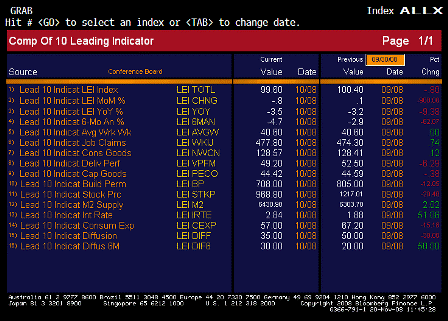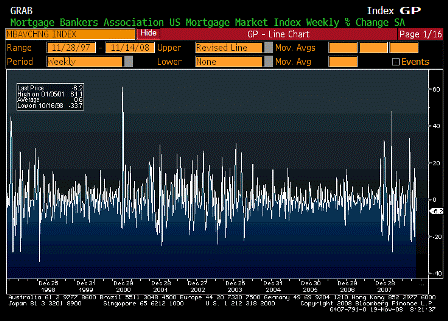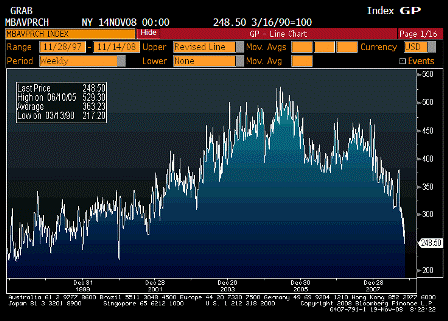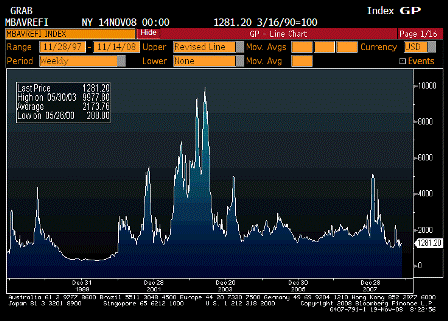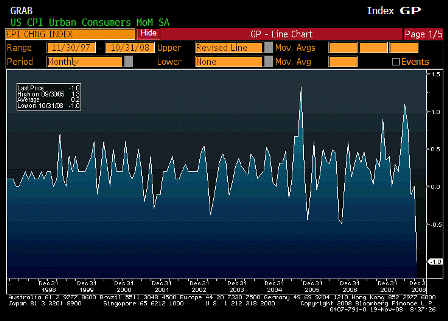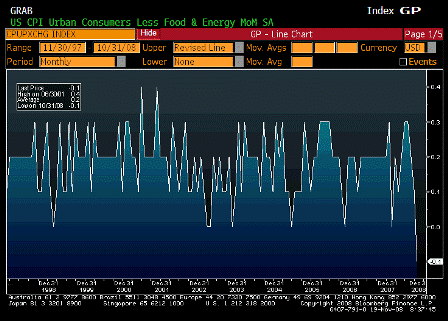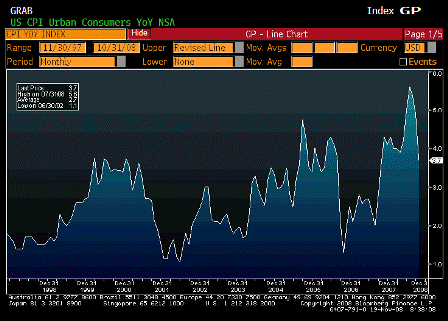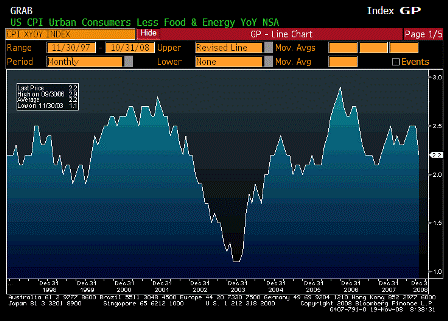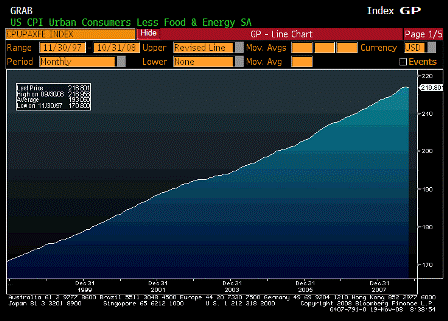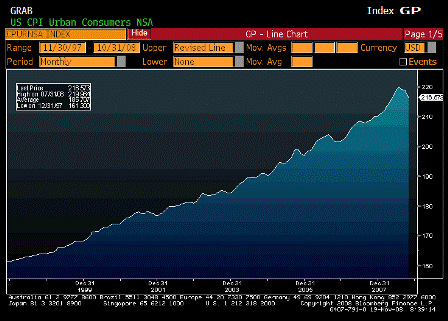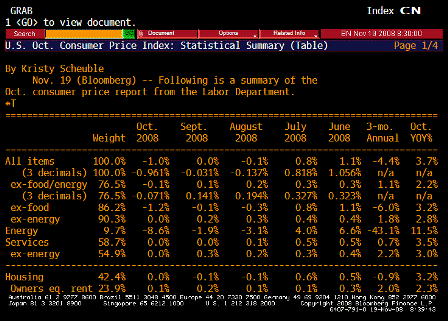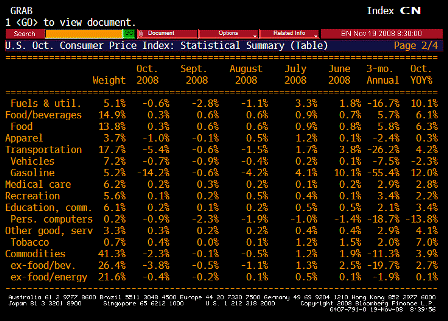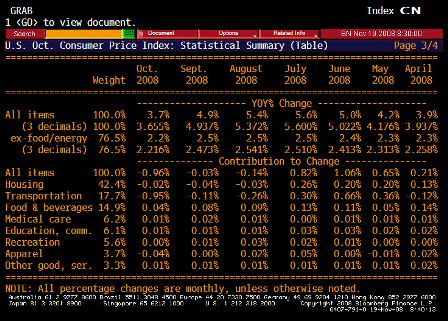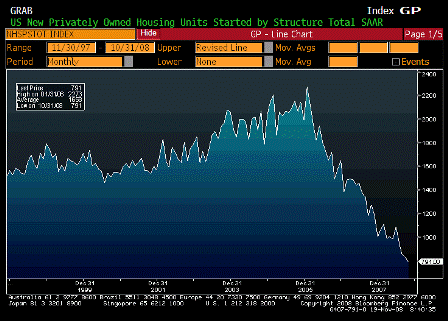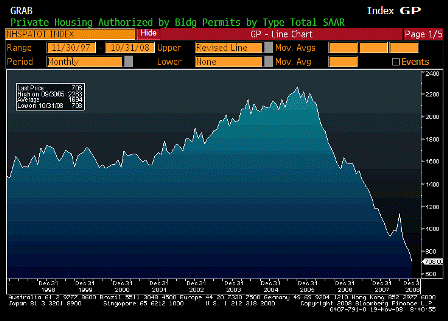The combination of ‘automatic stabilizers’ and proactive fiscal will reverse the downturn in the UK.
Unfortunately they waited too long for the proactive adjustment so they are suffering with the forces that drive the automatic stabilizers-
Falling revenues and rising transfer payments:
U.K. Budget Deficit Widens as Recession Saps Taxes
By Jennifer Ryan
The U.K. budget deficit widened as the gathering recession pounded tax receipts, and analysts warned of worse to come as the economic slump deepens. The 37 bln-pound shortfall ($55 bln) in the first seven months of the fiscal year was the largest since records began in 1993, the Office for National Statistics said in London today. The deficit in October was 1.38 bln pounds, the first shortfall for the month since 1994 and more than triple the 400 million pounds forecast by economists in a Bloomberg News survey.
Chancellor of the Exchequer Alistair Darling is planning a package of tax cuts and infrastructure projects to limit the recession, forecast by the Bank of England to extend well into 2009. Tax increases or spending restraint will eventually be needed to bring down the level of borrowing, economists say.
“The likelihood is that the deficit will continue to escalate,” said Philip Shaw, chief economist at Investec Securities in London. “Patching up the public finances is going to be very, very hard work.”
Little more than half way through the fiscal year, the shortfall through October is just short of the 43 bln pounds forecast by Darling in March for the full fiscal year, which ends on March 31, 2009. In the same seven months last year, the deficit was 20.1 bln pounds. Darling will use his annual pre-budget report to Parliament on Nov. 24 to revise his economic forecasts. Economists in a Treasury survey this month predicted the deficit will reach 65 bln pounds this fiscal year and almost 90 bln pounds next year, or 6 % of national income, the most since 1995.
[top]

